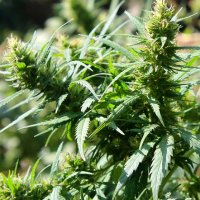A recent study suggests medicinal marijuana could play a role in stabilising patients with Bipolar Disorder.
Marijuana is the most widely used illicit substance among those suffering bipolar I disorder according to the study, but there is conflicting evidence as to whether its use by these patients is beneficial or harmful.
Researchers at Harvard Medical School and McLean Hospital in Boston delved into the issue, with the goal of determining the impact of marijuana on mood and cognitive functions. It’s possibly the first time the research has been carried out.
The study involved 21 healthy control subjects (HC), 23 marijuana smokers without BP (MJ), 18 individuals with bipolar I disorder who do not smoke marijuana (BP), and 12 with BP who smoke marijuana (MJBP)
Results were encouraging – those in the MJBP group reported significantly lower anger, tension, depression and higher energy levels after using cannabis; even though those participants had slightly worse levels of symptomatology relative to the pure BP group.
With regard to cognitive impairment, while BP patients and MJ subjects each demonstrated impairment on several measures of cognitive performance relative to HCs, there were no apparent differences when directly comparing the BP and MJBP groups
“Findings suggest that for some bipolar patients, marijuana may result in partial alleviation of clinical symptoms. Moreover, this improvement is not at the expense of additional cognitive impairment,” states the study.
It’s important to note that those using cannabis in this study were smoking it. With further research, the compounds beneficial to Bipolar Disorder sufferers could be identified and different delivery methods developed, such as capsules or edibles.
The full text of Joint Effects: A Pilot Investigation of the Impact of Bipolar Disorder and Marijuana Use on Cognitive Function and Mood can be viewed here.
According to SANE Australia, up to one person in fifty will develop Bipolar disorder at some time in their lives. It is characterised by over-excitement, delusions of grandeur and reckless behaviour at one end of the scale and depression at the other end; with the latter often quickly following the former. Depending on severity, it may require ongoing medication with mood stabilising drugs for maintenance, tranquilisers for manic episodes and anti-depressants for the depressive phase.


